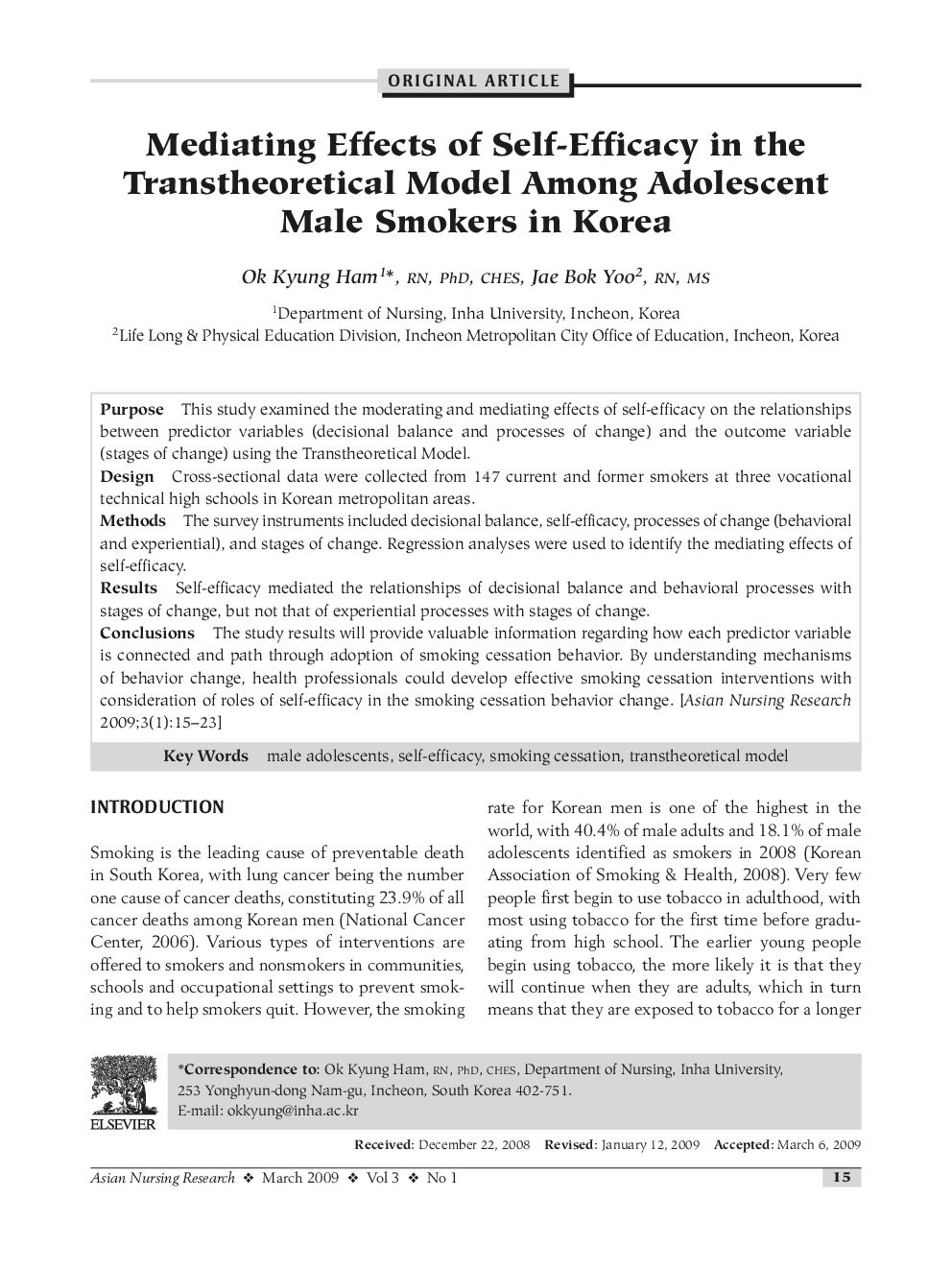| Article ID | Journal | Published Year | Pages | File Type |
|---|---|---|---|---|
| 2645252 | Asian Nursing Research | 2009 | 9 Pages |
PurposeThis study examined the moderating and mediating effects of self-efficacy on the relationships between predictor variables (decisional balance and processes of change) and the outcome variable (stages of change) using the Transtheoretical Model.DesignCross-sectional data were collected from 147 current and former smokers at three vocational technical high schools in Korean metropolitan areas.MethodsThe survey instruments included decisional balance, self-efficacy, processes of change (behavioral and experiential), and stages of change. Regression analyses were used to identify the mediating effects of self-efficacy.ResultsSelf-efficacy mediated the relationships of decisional balance and behavioral processes with stages of change, but not that of experiential processes with stages of change.ConclusionsThe study results will provide valuable information regarding how each predictor variable is connected and path through adoption of smoking cessation behavior. By understanding mechanisms of behavior change, health professionals could develop effective smoking cessation interventions with consideration of roles of self-efficacy in the smoking cessation behavior change. [Asian Nursing Research2009;3(1):15–23]
